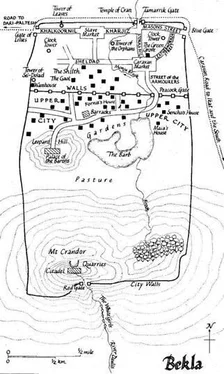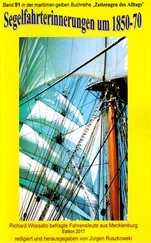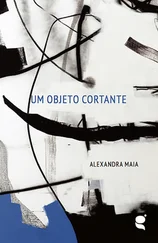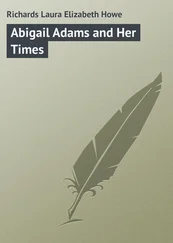Richard Adams - Maia
Здесь есть возможность читать онлайн «Richard Adams - Maia» весь текст электронной книги совершенно бесплатно (целиком полную версию без сокращений). В некоторых случаях можно слушать аудио, скачать через торрент в формате fb2 и присутствует краткое содержание. Жанр: romance_sf, на английском языке. Описание произведения, (предисловие) а так же отзывы посетителей доступны на портале библиотеки ЛибКат.
- Название:Maia
- Автор:
- Жанр:
- Год:неизвестен
- ISBN:нет данных
- Рейтинг книги:4 / 5. Голосов: 1
-
Избранное:Добавить в избранное
- Отзывы:
-
Ваша оценка:
- 80
- 1
- 2
- 3
- 4
- 5
Maia: краткое содержание, описание и аннотация
Предлагаем к чтению аннотацию, описание, краткое содержание или предисловие (зависит от того, что написал сам автор книги «Maia»). Если вы не нашли необходимую информацию о книге — напишите в комментариях, мы постараемся отыскать её.
Maia — читать онлайн бесплатно полную книгу (весь текст) целиком
Ниже представлен текст книги, разбитый по страницам. Система сохранения места последней прочитанной страницы, позволяет с удобством читать онлайн бесплатно книгу «Maia», без необходимости каждый раз заново искать на чём Вы остановились. Поставьте закладку, и сможете в любой момент перейти на страницу, на которой закончили чтение.
Интервал:
Закладка:
In the event, however, there was no fighting. Senda-na-Say, learning that Fornis had only just set out, concluded that provided he acted with the greatest dispatch he would have time to raise an auxiliary force in Tonilda sufficient to tip the scale. For generations past his family had had a large country estate at Puhra, on Lake Serrelind, and their personal influence and standing in Tonilda were stronger than in any other province. If he could cover the fifty miles to Puhra and lead three thousand men back before Fornis had reached Bekla, he would be able to add them to the loyal part of the army and with luck bring her to battle well out on the plain to the west of the city.
Kembri and Sencho had foreseen that Tonilda was a rope to which Senda-na-Say would cling when the storm got up, but to ensure that it would break in his hand proved almost beyond them. In the end they were able to do so only by paying more than they really wanted to give- though not in money. A high-ranking baron named Du-rakkon-by nature neither opportunist nor conspirator, but an idealist, critical of Senda-na-Say's regime-was persuaded to risk his life and all that he possessed to prevent Senda-na-Say's return from Puhra, on the promise of nothing less than the succession of the high barony of Bekla and hence the rule of the empire. In the event of his success it would not be practicable to break this promise, for he stood well among the aristocratic Leopards and was popular with the soldiery.
Senda-na-Say left Bekla in a forced march for Puhra on the third day of the month Prahn. On the night of the 6th Prahn Durakkon, setting out from Thettit with no more than thirty men, fired his house about his ears, and, as chance would have it, brought about his death beneath a falling beam. (It was at about this time that the child Oc-cula, her father and his men reached Bekla from Herl-Belishba.)
For several days Bekla remained in a state of general fear, suspicion and uncertainty. There was murder done on both sides, but lacking Senda-na-Say the army did no more than send out a half-hearted force which fell slowly back before the determined Kembri and Hah-Glat, finally declining to give battle altogether.
Fornis, to her own surprise, reached Bekla unopposed, before the rumor of Senda-na-Say's death had been confirmed there; for Durakkon had closed the road from Thettit, sending word to her only. Once arrived in the city she published the news and at once sent for Durakkon to authenticate it.
Two of the army regiments-those of Urtah and of Ton-ilda-refused to serve under the new regime and, in the general confusion of the first days, left Bekla unopposed and returned to their home provinces. The other six were taken over without resistance by the Leopards. Before the end of Prahn, Durakkon had been confirmed as High Baron of Bekla and ruler of the empire, Kembri-B'sai and Han-Glat being appointed Lord General and Controller of Fortifications respectively. Immediately upon the spring festival (which had been delayed) Fornis was acclaimed Sacred Queen of Airtha. On the same day Sencho-be-L'vandor, now appointed High Counselor of Bekla and the Leopards' Chief of Secret Intelligence, took up residence in his new house in the upper city, formerly that of Senda-na-Say's brother.
The Leopard victory was complete. In time both Urtah and Tonilda renewed their allegiance to Bekla, once more paying dues and providing contingents for the army. Their entire reliability, however, remained open to grave doubt, and consequently it was upon these provinces that Sencho and his intelligence agents chiefly concentrated during the ensuing years.
19: THE VIEWING
As might be expected, the Leopard regime was characterized from the outset by opportunism and corruption. It was soon clear that the would-be liberal Durakkon was ineffective and possessed no dominance or personal ascendancy over those who had brought him to power. The majority of appointments and nominations were in effect sold to the highest bidder and it was common knowledge that those who held them were venal. Taxation, on the other hand, was lower than under Senda-na-Say, partly because Bekla was no longer for the time being at war with Karnat of Terekenalt and partly because certain activities connected with law and order, such as the regular patrolling of the highways by troops, were no longer carried out. Those using the roads either travelled together in parties, hiring their own armed guards, or else, like Lalloc, bribed the brigands not to molest them and theirs.
The strength of the regime, despite the rapacity and profligacy of its real leaders, in whose hands Durakkon found himself virtually powerless, lay in the merchants and their wealth. Traders were enabled by law to buy raw materials-for instance, wool and leather-from provincial peasants and small farmers at fixed prices; and if the peasants refused to sell at these rates, the traders could buy armed force to compel them. Many of the landed aristocracy, who might once have resisted this, were encouraged or influenced to leave their estates in the hands of bailiffs and live in Bekla, where pleasure and luxury were more widespread than ever before. Those who bought office under the Leopards usually found that they were able to make a better thing of it than ever they had of seigneurial life in the provinces.
Changes such as these were what underlay the poverty of thousands of country small-holders like Morca, who could not sell what they produced for more than the prices fixed by the Leopards.
The growth of large households and luxurious ostentation among the wealthy increased the demand for slaves, until it became worthwhile for men to become professional dealers and cater for it. One means of supply was direct purchase from village elders, but kidnapping (sometimes with payment, as in the case of Maia, but often without)
also became widespread. At length a number of the Leopards, foreseeing a steady, long-term demand, set up slave-breeding farms in certain provinces of the empire. Lacking protection from absentee overlords, the remoter villages came to live in continual fear of slave-raiders. On the River Telthearna, north of Gelt, the young High Baron Bel-ka-Trazet was said to be turning his island of Ortelga into what was in effect a moated fortress. The slave-dealers, of course, were prosperous enough to pay heavy taxes to the Leopard rulers, to whom they were also acceptable on account of the additional trade they brought to such craftsmen as clothiers, shoemakers, blacksmiths and innkeepers.
The support of the common people of Bekla and other principal cities was ensured by cheap food and high expenditure on public entertainment. Most ordinary citizens, whether of middle or low degree, felt-not altogether without justification-that Queen Fornis, by giving Suba to Karnat and so ending the war with Terekenalt, had shown herself shrewd and benefited Bekla, and accordingly that she deserved to be where she was. The barons of Urtah, however, refusing to stomach what they regarded as her treachery (for Suba had been a dependency owing allegiance to the High Baron of Urtah), maintained along the Valderra a bitter hostility towards Karnat's outposts holding the western bank. Raids and clashes were frequent.
From the time when, as High Counselor, he took up residence in the upper city, Sencho's life became one of the most delightful luxury. Enjoying the support of Queen Fornis and General Kembri-B'sai he was soon able, through seizure, extortion and various confiscations, to regain and more than regain the large sums which he had paid out in bribes and silence-money during the three or four years preceding the fall of Senda-na-Say. Having acquired a virtual monopoly of the metal trade, he appointed (for money) others to carry it on for him. The function which he now fulfilled personally-and for which he quickly showed himself to possess a remarkable aptitude-was that of controlling the Leopards' extensive network of spies and of advising Kembri, Han-Glat and Fornis not only upon their reports but also upon all information obtained from political prisoners and suspects. This work, however, in the course of which he gradually made himself universally feared and attained to a most extensive knowledge of almost everything being plotted or discussed (some even said
Читать дальшеИнтервал:
Закладка:
Похожие книги на «Maia»
Представляем Вашему вниманию похожие книги на «Maia» списком для выбора. Мы отобрали схожую по названию и смыслу литературу в надежде предоставить читателям больше вариантов отыскать новые, интересные, ещё непрочитанные произведения.
Обсуждение, отзывы о книге «Maia» и просто собственные мнения читателей. Оставьте ваши комментарии, напишите, что Вы думаете о произведении, его смысле или главных героях. Укажите что конкретно понравилось, а что нет, и почему Вы так считаете.












